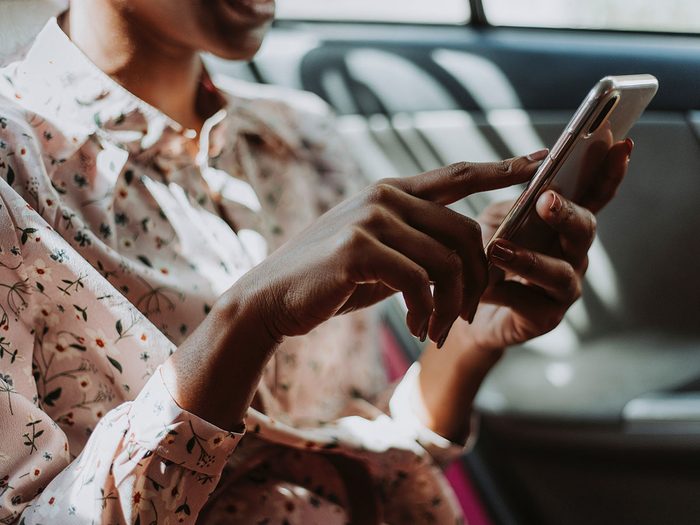
The “ping” of a new work email, a scroll through Instagram, or even the absence of a text or phone call can be enough to cue a mob of anxiety symptoms. We breathe rapidly, we sweat, we tremble, we find it impossible to think about anything else. But turns out, one of the primary causes of our feelings of panic—our smartphones—could be the very thing to help cure it. There’s a crop of apps waiting to be downloaded that encourage mindfulness, dissipate negativity, inspire gratitude, target insomnia, and offer solutions to common worries.
“When used appropriately, wellness apps can bring many benefits to users,” says Dr. Janine Hubbard, a registered psychologist in St. John’s, Newfoundland and Communications Director with the Association of Psychology Newfoundland and Labrador (APNL). While there’s no adequate replacement for in-person care with a mental health professional, mind-soothing apps can be effective because of their convenience—they can be accessed anytime, anywhere, for little to no cost. Through guided breathing exercises and calming activities, apps help users manage symptoms of anxiety, which can be much more effective than trying to do so on your own, says Dr. Hubbard.
It’s important to note that apps don’t work for everyone. “Some people require more intense intervention than can be supported by an app,” says Dr. Hubbard, “and as a result, they may feel helpless as they’re not seeing the same benefits from the apps as their friends.” Explore and experiment with apps and in-person care to manage your anxiety most effectively.
Ready to tame that racing mind? We’ve rounded up five of our favourite wellness apps that can help you combat anxiety—and they all happen to be Canadian. So, the next time you’re about to mindlessly open up one of your anxiety-inducing social apps as you wait in line or sit on the subway, consider opening up one of these calming apps instead. You’ll walk away feeling happier, lighter, and more relaxed.

To help you sleep
“Although [doctors] generally discourage the use of electronics prior to bedtime or during the night,” says Dr. Hubbard, “the use of calming music, guided meditation or stories can be of great benefit to people having trouble sleeping.” (Just make sure notifications are turned off, she advises.) Relax Melodies, founded in Montreal, offers a library of soothing sounds (including ASMR, if that’s your thing), guided meditations, sleep positions, and more. Add your bedtime to your profile, and the app will help ensure you have plenty of time for pre-snooze mind-soothing activities. The app is free to download on the App Store, and many sounds (like “River,” “Night,” and “Rain”) and meditations are free, but more offerings can be unlocked by paying the monthly subscription price of $4.99.
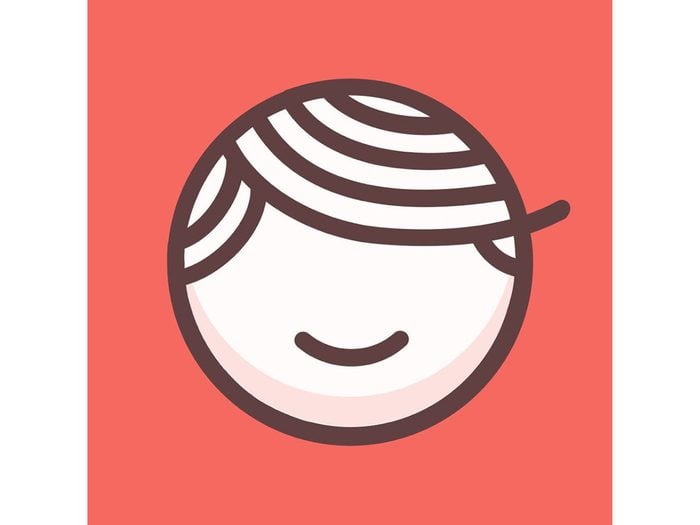
To tend to your mental health
Joyable offers coaches who are available to you at any time to help you address common mental health issues including stress, anxiety, and depression. When you download the app (for free) via the App Store, you’re prompted to take a 2-minute quiz before being paired with a professional. You can try the app for free for seven days, and then it’s $99 per month for an 8-week program. It’s pricey, yes, but it can be less expensive than in-person care with a mental health professional, plus, you have access to help 24 hours a day, no matter where you are. “For many, ready access to a mental health coach may be helpful for general life stress and coping assistance or as an adjunct to regular therapy,” says Dr. Hubbard. However, if you’re experiencing a more significant mental health condition, this may not be the best treatment option for you.
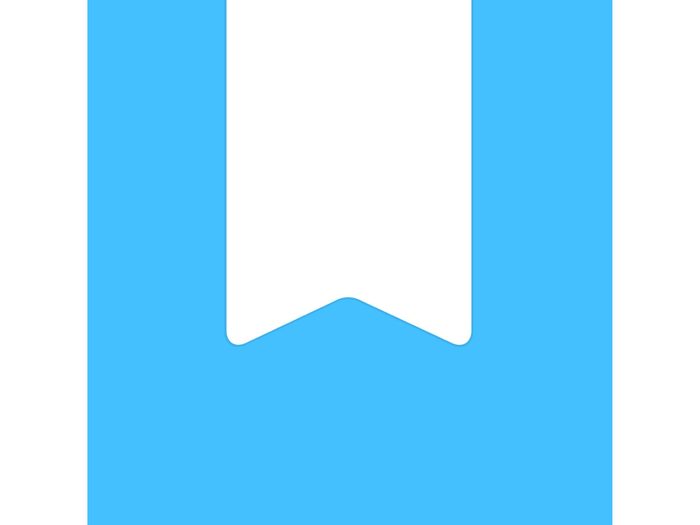
To reflect and practice gratitude
Writing in a journal gives us the chance to process thoughts and emotions in a private format and reflect on the past through previous entries, says Dr. Hubbard. It’s a way to capture and keep track of your memories, moods, and experiences. Day One offers the space to write daily journal entries, and even add photos, voice recordings, and attachments to each post. “Journals can be particularly useful when people are having negative experiences such as an illness or hospitalization,” says Dr. Hubbard, “or more positive experiences such as a holiday, or the birth of a child.” What’s more, Day One encourages long-form writing and can, therefore, help improve your writing skills. The app can be downloaded for free on the App Store, with the option to pay $46.99 per year to securely back up your entries.
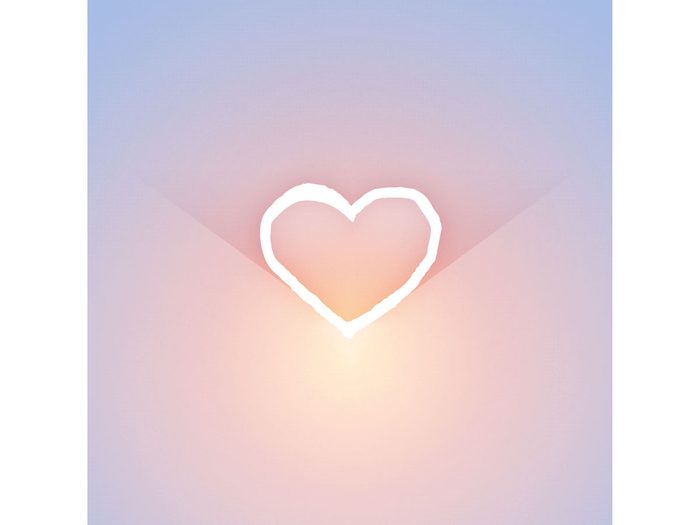
To soothe the mind
“In addition to deep breathing and relaxation, distraction is a frequently used therapeutic tool, particularly for stress and anxiety,” says Dr. Hubbard. #SELFCARE, founded in Toronto in 2018, features a digital bedroom and has users engage in repetitive, peaceful activities like tidying up the virtual space and petting a virtual cat. “Apps that combine distraction with calming techniques can be very helpful either to provide grounding before starting the day or a task,” says Dr. Hubbard, “or as a way to decrease building anxious thoughts and feelings.” It’s available for free on the App Store, and app enhancements are available for small, individual fees.
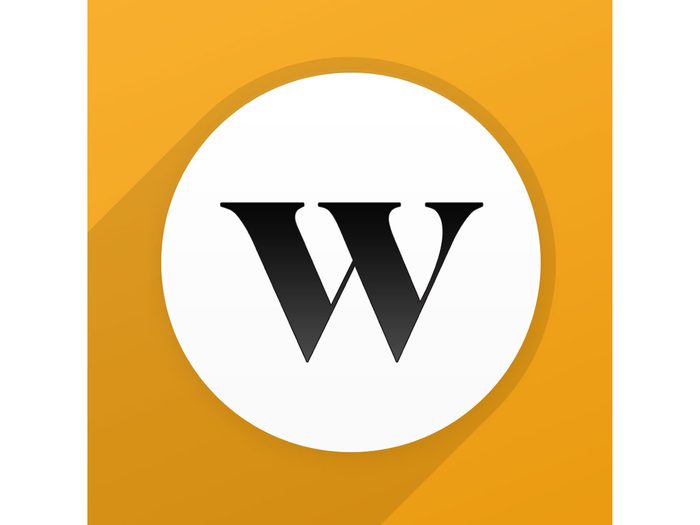
To address your money woes
What keeps many of us up at night? Money stress. “Feeling in better control of our finances and spending is always an important part of stress reduction,” says Dr. Hubbard. Wealthsimple, founded in Toronto, enables users to turn everyday purchases into smart investments. The app rounds up your credit or debit charges of everyday expenses to the nearest dollar, and the app invests it for you. “For some, especially those who feel intimidated by the big banks or the thought of discussing personal finances with a bank employee, online tools and apps may be useful,” says Dr. Hubbard. Wealthsimple is available for free on the App Store.
Next, check out the best apps for your brain.
